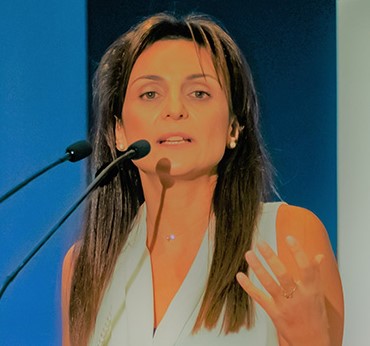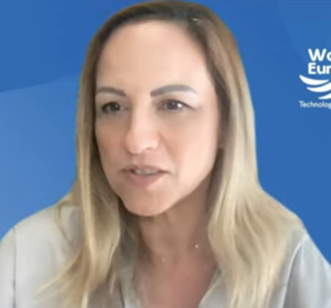
Meet the FABLE Greece team
The team is led by the Alliance of Excellence for Research and Innovation on Αephoria (AE4RIA) Network. AE4RIA is an initiative for collaboration between research institutions, innovation accelerators and science-technology-policy interface networks, focused on sustainable development. Their mission is to facilitate a science driven and human centric transformation towards the joint implementation of the Sustainable Development Goals of UN Agenda 2030, the Paris Agreement on Climate Change and the European Green Deal.
The team’s main areas of interest include sustainable development pathways, transformation of the agri-food sector and biodiversity loss.
Models used by the team: FABLE Calculator.
Transforming food and land-use systems in Greece
The Greek agricultural sector employs approximately 400,000 people, accounting for 10% of total employment across all sectors. Nearly a third of the Greek population resides in rural areas, which exceeds the EU average. The vast majority of the country's approximately 700,000 farms are relatively small, with the average farm size being 7 hectares, and more than 70% consist of less than 5 hectares.
However, the sector faces significant challenges, including low levels of agricultural education and digital skills among farmers, an aging farming population, small farm sizes, and a low level of cooperation. Moreover, there is poor adoption of technological innovations and digital solutions.
Greece also confronts significant challenges in the circular economy domain, with waste-to-landfill rates surpassing EU averages. The cyclical use of products, while increasing from 2.4% of all materials in 2016 to 5.4% in 2020, still lags behind the EU average of 12.4%. These figures underscore the urgent need to implement national commitments in everyday practices.
Notable challenges persist in the area of Biodiversity, despite the existence of the National Strategic Plan on Biodiversity established in 2014, which provides an ambitious roadmap. Marked delays exist in achieving biodiversity targets, especially in the case of preserving and managing protected (NATURA) areas. Between 2010 and 2022, Greece lost 9.79kha of natural forest area, covering more than 25% of the total land.
Moreover, only 3% of the population reported low or very low food security in 2022, placing Greece at the high end of the Global Food Security Index distribution. However, the recent cost of living crisis (2022-23) has adversely impacted the affordability of food items for a non-negligible share of the population. Policy initiatives have helped mitigate the effect, but it remains a matter of concern for the years ahead.
Key national objectives and targets
- Greece updated its Nationally Determined Contribution (NDC) in December, in tandem with the EU, following the initial submission in March 2015. This update was based on the European Council's accord, recognizing the exceptional economic and social situation resulting from the COVID-19 crisis, which necessitated exceptional measures to support the recovery and resilience of Member States' economies.
- As an EU member, Greece has set ambitious targets to fully implement the Fit-for-55 Package and reduce GHG emissions by 55% by 2030, compared to 1990 levels.
- The country has made a commitment to halt biodiversity loss by expanding Protected Areas to cover 30% of land and sea waters by 2030.
- Greece has increased its target for Renewable Energy capacity to 27.8 GW (excluding hydroelectric plants) by 2030.
- Climate targets have been incorporated into the National Energy and Climate Plan, established in 2019 and updated in 2023. This plan outlines critical milestones for 2030 and sets the medium-term pathway to achieve climate neutrality by 2050.
- Greece plans to expand the area of organic farming by 20%, while simultaneously reducing the use and risk of pesticides by 50%.
Publications
- Ioannou, A. E., & Laspidou, C. S. (2023). Cross-Mapping Important Interactions between Water-Energy-Food Nexus Indices and the SDGs. Sustainability, 15(10), 8045. https://doi.org/10.3390/su15108045.
- Ziliaskopoulos, K. and Laspidou, C. Using remote-sensing and citizen-science data to assess urban biodiversity for sustainable cityscapes, 26 May 2023, PREPRINT (Version 1) available at Research Square [https://doi.org/10.21203/rs.3.rs-2973172/v1].
- Mohtar, R. H., Aoun, M., Daher, B., Laspidou, C. S., Kim, H., & Sharma, V. K. (2023). Water-Energy-Food-Health Solutions and innovations for low-carbon, climate-resilient drylands. Frontiers in Environmental Science, 11, 368. https://doi.org/10.3389/fenvs.2023.1153671.
- Koundouri P., Devves S., Papadaki L., Bitter-Krahe J., Turrini S., Henning W. (2022). Waste management using Life Cycle Sustainability Assessment of Circular Interventions. A case study in the Greek fashion Industry. Italian Law Journal. Pp. 253-284. Birol, E., Koundouri, P., and Kountouris, Y., 2009. Assessing the economic viability of alternative water resources in water scarce regions: The roles of economic valuation, cost–benefit analysis and discounting. Ecological EconomicsVolume 69, Issue 4, Pages 839-847 https://doi.org/10.1016/j.ecolecon.2009.10.008. Also published as International Food Policy Research Institute (IFPRI) Discussion. Paper 190 http://econpapers.repec.org/paper/fprifprid/.
- Alamanos A, Koundouri P, Papadaki L and Pliakou T (2022) A System Innovation Approach for Science-Stakeholder Interface: Theory and Application to Water-Land-Food-Energy Nexus. Frontiers Water 3:744773. https://doi.org/10.3389/frwa.2021.744773.
- Akinsete E, Koundouri P, Kartala X, Englezos N, Lautze J, Yihdego Z, Gibson J, Scholz G, van Bers C and Sodoge J (2022) Sustainable WEF Nexus Management: A Conceptual Framework to Integrate Models of Social, Economic, Policy, and Institutional Developments. Front. Water 4:727772. doi: 10.3389/frwa.2022.727772.
- Laspidou, C., & Ziliaskopoulos, K. (2022). Using System Dynamics Modelling to visualize the effects of resource management and policy interventions on biodiversity at a regional scale. Ecological Indicators, 145, 109630. https://doi.org/10.1016/j.ecolind.2022.109630.
- Koundouri, P., Laspidou, C., Landis, C., Plataniotis, A. Kaptsikas, A., Kanellopoulou, T., Kasiolas, V., Zacharatos, T., (2022). The progress of the Greek Regions in relation to the Sustainable Development Goals (SDGs), Sustainable Development Solutions Network -SDSN Greece. September 2022.
- Ioannou, A. E., & Laspidou, C. S. (2022). Resilience analysis framework for a water–energy–food nexus system under climate change. Frontiers in Environmental Science, 10, 820125. https://doi.org/10.3389/fenvs.2022.820125.
- Papadopoulou, C. A., Papadopoulou, M. P., & Laspidou, C. (2022). Implementing water-energy-land-food-climate nexus approach to achieve the sustainable development goals in Greece: Indicators and policy recommendations. Sustainability, 14(7), 4100. https://doi.org/10.3390/su14074100.
- Ramos, E. P., Kofinas, D., Sundin, C., Brouwer, F., & Laspidou, C. (2022). Operationalizing the nexus approach: Insights from the sim4nexus project. Frontiers in Environmental Science, 10, 787415. https://doi.org/10.3389/fenvs.2022.787415.
- Laspidou, C., Kofinas, D., & Pereira Ramos, E. (2021, April). Resource Nexus Methodological Framework: Making the Nexus Operational. In EGU General Assembly Conference Abstracts (pp. EGU21-3932). https://doi.org/10.5194/egusphere-egu21-3932, 2021.
- Malagó, A., Comero, S., Bouraoui, F., Kazezyılmaz-Alhan, C. M., Gawlik, B. M., Easton, P., & Laspidou, C. (2021). An analytical framework to assess SDG targets within the context of WEFE nexus in the Mediterranean region. Resources, Conservation and Recycling, 164, 105205. https://doi.org/10.1016/j.resconrec.2020.105205.
- Janssen, D. N., Ramos, E. P., Linderhof, V., Polman, N., Laspidou, C., Fokkinga, D., & de Mesquita e Sousa, D. (2020). The climate, land, energy, water and food nexus challenge in a land scarce country: innovations in the Netherlands. Sustainability, 12(24), 10491. https://doi.org/10.3390/su122410491.
- Laspidou, C. S., Mellios, N. K., Spyropoulou, A. E., Kofinas, D. T., & Papadopoulou, M. P. (2020). Systems thinking on the resource nexus: Modeling and visualisation tools to identify critical interlinkages for resilient and sustainable societies and institutions. Science of the Total Environment, 717, 137264. https://doi.org/10.1016/j.scitotenv.2020.137264.
- Koundouri Phoebe and Papadaki Lydia, 2020. Integrating Water-Food-Energy Nexus with Climate Services: Modelling and Assessment for a case study in Africa.”In the Handbook Sustainability Concept In Developing Countries, IntechOpen, 2020. Available: https://www.intechopen.com/chapters/70971".
- Papadopoulou, C. A., Papadopoulou, M. P., Laspidou, C., Munaretto, S., & Brouwer, F. (2020). Towards a low-carbon economy: A nexus-oriented policy coherence analysis in Greece. Sustainability, 12(1), 373. https://doi.org/10.3390/su12010373.
- Brouwer, F., Laspidou, C., & Vamvakeridou-Lyroudia, L. (2020, May). Serious Games to improve decision-making on the water-land-energy-food-climate nexus. In EGU General Assembly Conference Abstracts (p. 2230). https://doi.org/10.5194/egusphere-egu2020-2230.
- Stella Apostolaki, Phoebe Koundouri, NikitasPittis. 2019.Using a systemic approach to address the requirement for Integrated Water Resource Management within the Water Framework Directive. Science of the Total Environment, Volume 679, 20 August 2019, Pages 70-79 https://doi.org/10.1016/j.scitotenv.2019.05.077.
- Laspidou, C. S., Mellios, N., & Kofinas, D. (2019). Towards ranking the water–energy–food–land use–climate nexus interlinkages for building a nexus conceptual model with a heuristic algorithm. Water, 11(2), 306. https://doi.org/10.3390/w11020306.
- Laspidou, C. S., Kofinas, D. T., Mellios, N. K., & Witmer, M. (2018, August). Modelling the water-energy-food-land use-climate Nexus: the Nexus tree approach. In Proceedings (Vol. 2, No. 11, p. 617). MDPI. https://doi.org/10.3390/proceedings2110617.
- Laspidou, C. S. (2014). Grey water footprint of crops and crop-derived products: Analysis of calculation method. Fresenious Environ Bull, 23, 2899-2903.
Recent activities
- Online Poster at Tropentag 2023. Competing pathways for equitable food systems transformation:trade-offs and synergies.
- UN SDSN Global Climate Hub Workshop: “Systematic review on Integrated Assessment Models for decarbonization pathways”. Hybrid Workshop organized by ATHENA RESEARCH & INNOVATION CENTER - April 5, 2023.
- EAERE 2023. Conference held in Limassol, Cyprus 27 Jun - 30 Jun 2023.
- Presentation of FABLE and Modelling Work of the Global Climate Hub to the Greek Special COmmittee for Climate Change Online WOrkshop - June 2, 2023.





